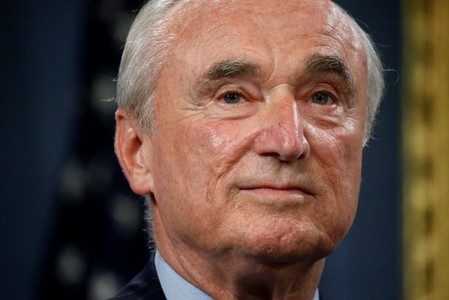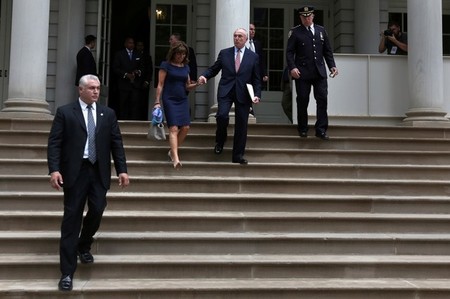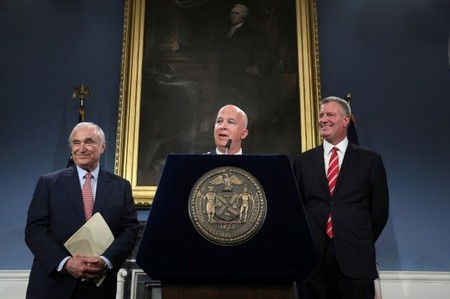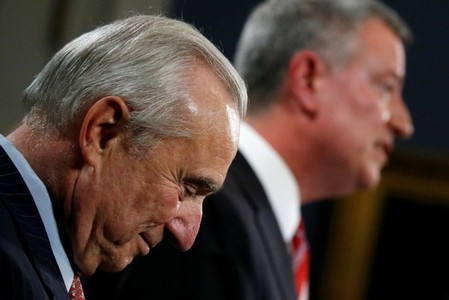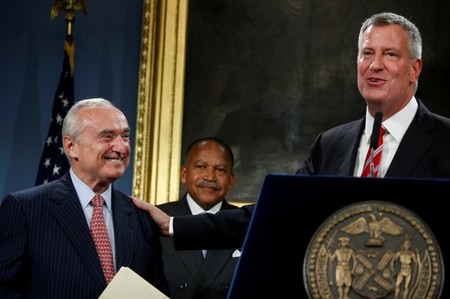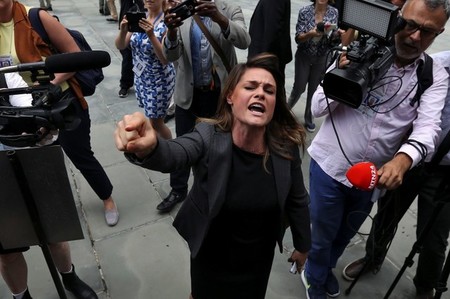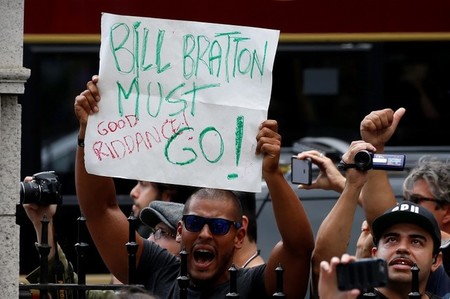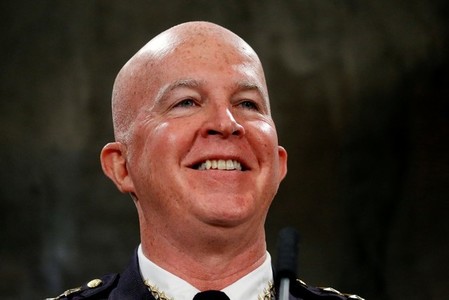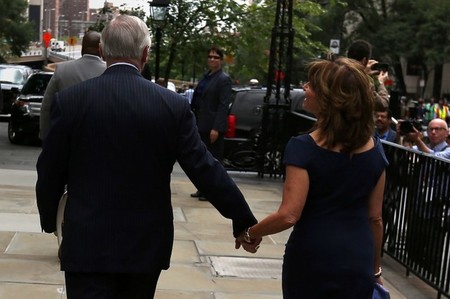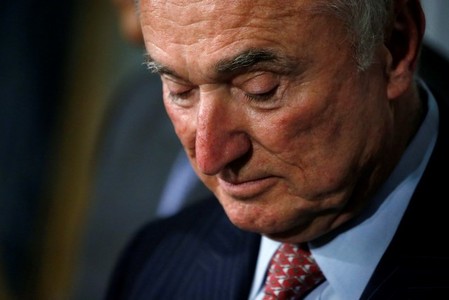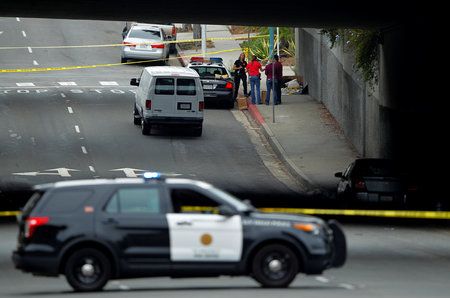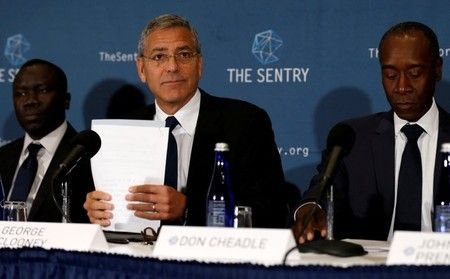Advertisement
New York City Police Commissioner Bratton to retire
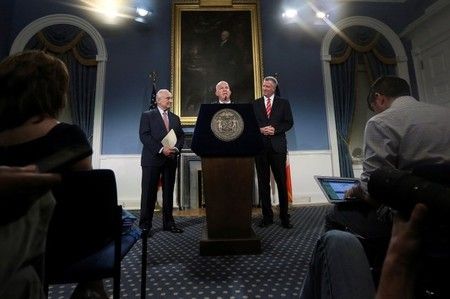
By Joseph Ax
NEW YORK (Reuters) – New York City Police Commissioner William Bratton said on Tuesday he will retire in September, ending a four-decade career that earned him credit for pushing crime rates to historic lows but also criticism for his “zero tolerance” approach to policing.
Bratton, 68, will head a newly created risk division at the consulting firm Teneo, where he will advise chief executives on cyber crime and terrorism, he said during an interview on CNBC.
At a City Hall news conference, Mayor Bill de Blasio praised the man he tapped to head the nation’s largest municipal police force in 2014, saying Bratton reduced violent crime while bolstering the department’s extensive counterterrorism operation.
“I wish I had words for what this man has achieved,” de Blasio, a Democrat, said at the City Hall news conference.
Chief James O’Neill, 58, the department’s top uniformed officer with more than 30 years on the force, will succeed Bratton as commissioner. O’Neill, a Brooklyn native, designed the department’s neighborhood policing program, aimed at improving relations between officers and the communities they patrol.
Widely seen as the face of U.S. policing, Bratton is a strong supporter of the “broken windows” theory, which holds that ignoring minor infractions such as vandalism and public drinking can lead to more serious crimes.
During his first stint as New York’s police commissioner from 1994 to 1996 under tough-on-crime Republican Mayor Rudy Giuliani, Bratton put the theory into action by cracking down on petty crimes at a time when the city was a far more dangerous place.
He also introduced the CompStat system of real-time crime tracking, which has since been adopted by other police departments around the world.
Bratton resigned in 1996 after his relationship with Giuliani grew strained over who deserved more credit for the drop in crime.
Supporters said Bratton’s approach made New York the safest big city in the United States. But his detractors have attacked the “broken windows” strategy as discriminatory and heavy-handed.
Some critics said the aggressive philosophy eventually gave rise to the “stop-and-frisk” tactic used extensively under Raymond Kelly, who served as commissioner under de Blasio’s predecessor, Mayor Michael Bloomberg, from 2002 to 2014.
Despite falling crime rates, the tactic was reviled by civil rights leaders, who said it had a disproportionate impact on minority residents. De Blasio campaigned in 2013 on ending the practice.
A federal judge ruled that the tactic was an unconstitutional form of racial profiling in 2013, just months before de Blasio and Bratton took office.
After his appointment, Bratton faced the same issues of race and mistrust that have plagued police departments across the country following a series of police killings of unarmed black men.
In July 2014, Eric Garner died when an arresting officer put him in a chokehold despite department rules forbidding such a move, prompting widespread protests.
Five months later, two police officers were shot to death in their patrol car in Brooklyn by a suspect who said on social media that he was avenging Garner and Michael Brown, a black man killed by police in Ferguson, Missouri.
Bratton also had to contend with antipathy toward de Blasio from rank-and-file officers angered by the mayor’s comments about police brutality.
“This is a challenging time for police in America and in New York,” Bratton said on Tuesday.
Under Bratton, the department has devoted increased resources to counterterrorism, including the creation last year of a specialized 500-officer squad intended to respond within minutes to any attack on the city.
In recent months, Bratton has disciplined several high-ranking officers as part of a federal corruption investigation that also has examined de Blasio’s fundraising practices.
Both the mayor and Bratton said the investigation had nothing to do with the commissioner’s decision to retire.
“There’s never a good time, but there’s a right time,” said Bratton, who started his career as an officer in 1970 in his hometown of Boston, and still speaks with the accent of a Bostonian.
Bratton also oversaw the Boston and Los Angeles police departments and was briefly considered by then-British Prime Minister David Cameron for the London police chief job in 2011.
He had previously said he would retire from New York no later than next year.
(Reporting by Joseph Ax; Additional reporting by Daniel Wallis; Editing by Bill Trott and Jonathan Oatis)


